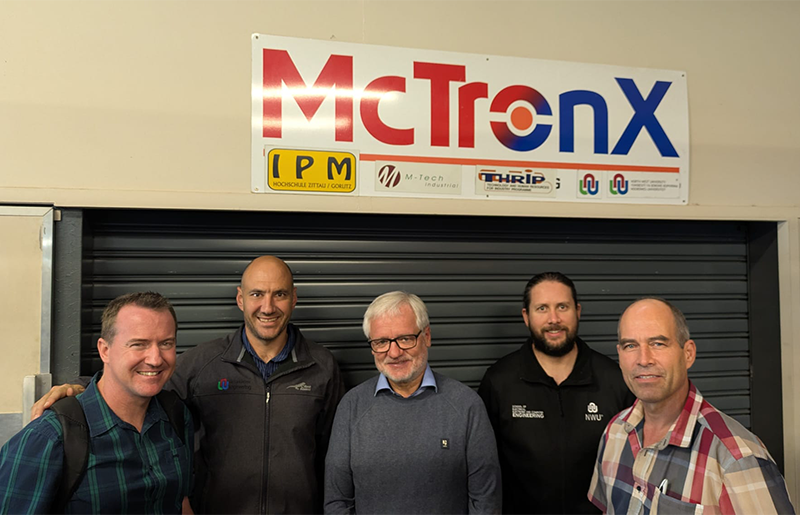Opportunities for international research experience are one of the many benefits of the newly expanded research and teaching partnership between the North-West University (NWU) and Hochschule Zittau/Görlitz (HSZG) University of Applied Sciences in Germany.
The two universities, who have had an engineering collaboration for over two decades, have deepened their partnership following a three-week visit by HSZG’s Prof Frank Worlitz to the NWU’s Potchefstroom Campus in April this year.
The visit was part of the NWU’s drive to advance its global academic agenda and strengthen ties with high-calibre partners such as HSZG.
This collaboration began in 2004 between the NWU’s Prof George van Schoor of the Faculty of Engineering and Prof Worlitz, and focuses on engineering research, academic exchange and postgraduate training.
Enabling investment in human capital
Prof van Schoor says the relationship has produced measurable results over the years. “We have seen this partnership move from joint research to real investment in human capital. Several students who participated in the exchange, now hold prominent academic and industry positions.”
During the South African visit, the NWU and HSZG colleagues discussed curriculum development and research priorities. A key focus was energy-based fault detection in large-scale industrial systems, a field that holds industrial relevance in terms of system reliability and energy efficiency.
Prof Worlitz’s engagements included workshops with teaching staff in the Mechatronics programme on topics ranging from pedagogical approaches to assessment methods.
The sessions also covered the use of artificial intelligence (AI) in engineering education. “We are exploring how staff and students could be educated in the responsible use of AI,” says Prof van Schoor.
A session was also held with current and prospective postgraduate students to outline the available support structures for international research exchanges.
International research experience for students
“Our goal is to prepare students not only with technical knowledge, but with international research experience,” says Prof van Schoor.
As part of future planning, Prof Worlitz has proposed a new international degree programme at HSZG in automation and robotics. The programme would feature modules on AI applications and specialisations in fields such as building automation and systems management.
The partnership has also contributed to the design of a new HSZG module, “Introduction to AI applications for engineers”, based on discussions held during the visit.
The two universities plan to expand their joint initiatives through new research projects, mobility funding proposals and academic exchange programmes.
“We don’t see this as a short-term academic exercise,” says Prof van Schoor. “We are building a long-term model for shared knowledge creation.”

From left are Prof Kenny Uren, Prof Andre Grobler, Prof Frank Worlitz, Dr Henri Neser and Piet van Huyssteen in front of the Mechatronics Laboratory.
